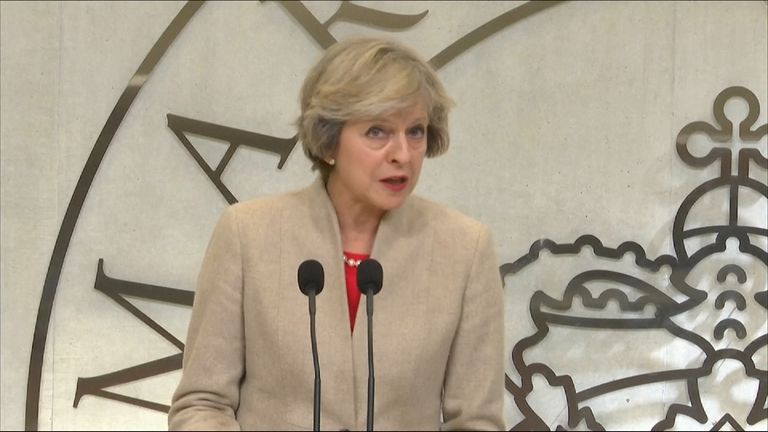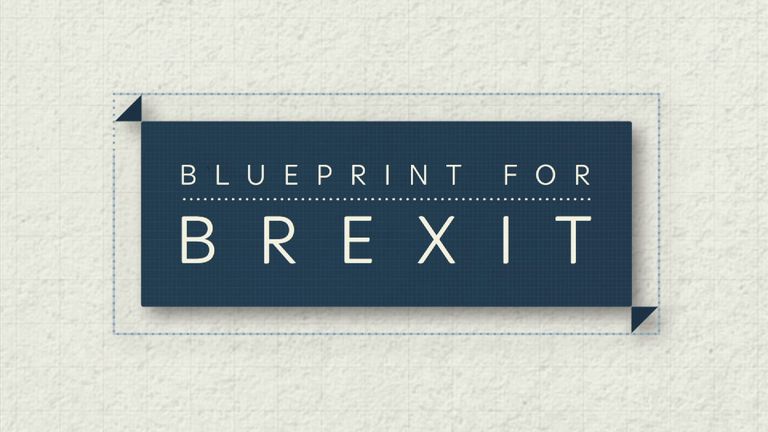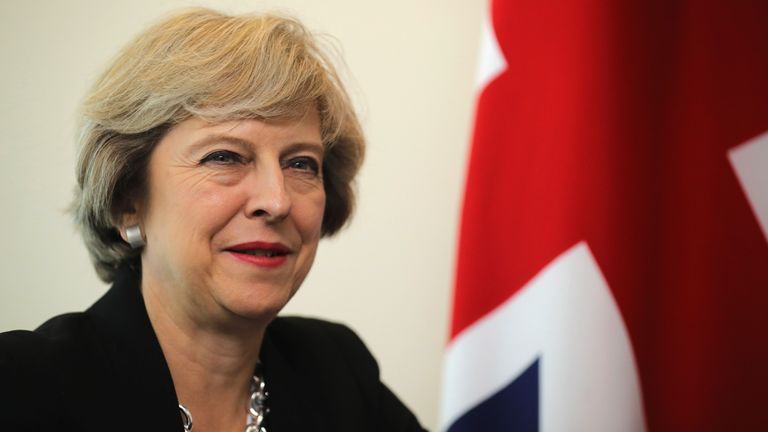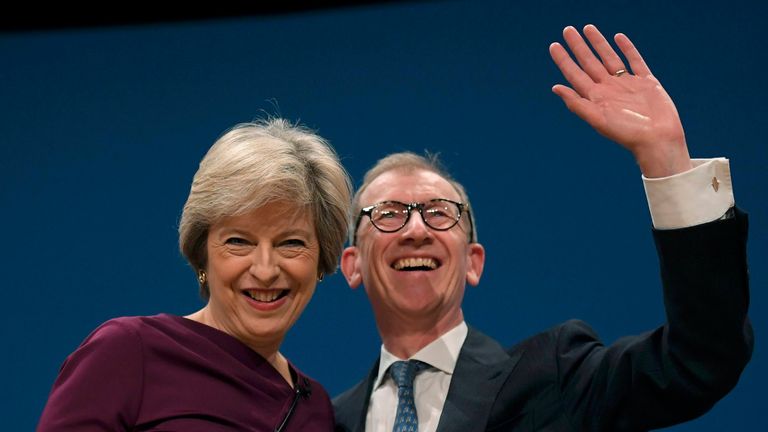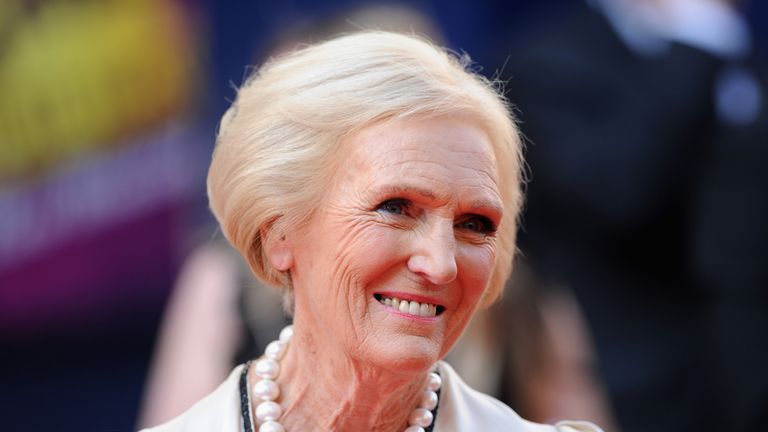How has Theresa May made her mark in first 100 days as Prime Minister?
Her first days in power have been dominated by Brexit. With plenty more to come, Jon Craig takes a look at her performance so far.
Friday 21 October 2016 13:01, UK
She's a fan of Mary Berry, but not Jamie Oliver.
She's an "owl, not a lark" and often works until 2am rather than getting up early.
She is 10 years older than predecessor David Cameron, having just turned 60. Which is, she says, "the new 40".
She drinks Earl Grey tea, likes cricket - this summer she went to watch England v Pakistan - and Geoffrey Boycott was one of her heroes.
These are just some of the personal tastes, likes and dislikes of Theresa May that we know about after her first 100 days as Prime Minister.
It has been 100 days dominated by and all the issues associated with it, such as , . And keeping the lid on Cabinet feuds over the vote to leave the EU.
The new PM is a vicar's daughter who says politics is not a game or about doing things for short-term party advantage.
Who could she possibly mean by that?
She has a dry sense of humour, which she revealed in her first Prime Minister's Questions in July and again in her most recent, earlier this week.
In her first, she mocked Jeremy Corbyn after he asked a question about unscrupulous bosses.
She shot back: "A boss who doesn't listen to his workers?
"A boss who requires some of his workers to double their workload? Maybe even a boss who exploits the rules to further his own career?"
And then, placing her elbow on the despatch box, she leaned forward and, in a put-down that was eerily like Margaret Thatcher in her pomp, said: "Remind him of anybody?"
Another quip came when Tory MP Peter Bone announced in PMQs that it was his birthday, to which she replied: "I hope Mrs Bone is going to treat the occasion in an appropriate manner."
But unlike Thatcher - who famously said in her 1981 Tory conference speech "You turn if you want to. The lady's not for turning" -
Heathrow, grammar schools, Hinkley Point, the childhood obesity strategy, the Northern Powerhouse, help-to-buy and reducing the deficit: and that's just in her first 100 days.
And while Mrs Thatcher famously said there was "no such thing as society", Mrs May spoke in her Tory conference speech in October about "the good that Government can do".
Her first act as Prime Minister was to , whom she told in a two-minute meeting to go and learn about loyalty on the backbenches.
Out went Cameron cronies - later nearly all showered with knighthoods, peerages and other baubles and gongs by the former Prime Minister - and in came "the three Brexiteers": Boris Johnson, David Davis and Liam Fox.
Then she embarked on a Brexit roadshow of the four parts of the UK and a European tour, first clashing with Scotland's First Minister Nicola Sturgeon and then being told some hard truths about the UK leaving the EU by Angela Merkel and Francois Hollande.
U-turn number one came in a shock announcement at the end of July she was considering pulling the plug on the Chinese-financed Hinkley Point nuclear power station, which had been championed by George Osborne.
It turned out to be just a temporary power cut, however, and the project was switched back on earlier this month.
In August, the new PM took a very Thatcher-style holiday, walking in the Swiss Alps with her husband, City financier Philip May. They met as Tory-supporting students at Oxford University, introduced by Benazir Bhutto.
Philip insists he's no Denis Thatcher, however. "I don't have snifters, sharpeners or liveners," he told Tories during the party conference earlier this month. "And I don't play golf."
In September, the PM went globetrotting, first to the G20 in China. During the summit, she ruled out the points-based immigration system backed by Brexit campaigners in the EU referendum. It was "not a silver" bullet to reduce immigration, she said.
Then it was off to the United Nations General Assembly in New York and a vow to the rest of the world that the UK did not "vote to turn inwards" when it backed Brexit in the referendum.
In between the globetrotting, the PM made her most controversial policy announcement of her first 100 days, promising to end "selection by house price".
It's a policy that is bitterly opposed by many in her own party - not least, Tory MPs suspect, by David Cameron - who only days after the PM's speech announced he was quitting as an MP.
On grammar schools, Mrs May has picked a fight with many in her own party as well as her political opponents and the education establishment. It is high stakes and some in her party see it as an unnecessary fight.
If she is defeated or has to back down, her authority will be badly damaged and her judgement seriously questioned. But so far she is in no mood to compromise.
At the Tory conference in Birmingham, Mrs May made two big speeches: first, attempting to deal with Brexit, she announced she would trigger Article 50 on leaving the EU by March next year and introduce a Great Repeal Bill in Parliament next year.
She wore metal toe-capped shoes, which were seen as a sign of her stamping her authority on Brexit-blockers. But the markets were spooked and the pound slumped the following day.
In her closing speech at the end of the conference, she sought to define her vision: "Mayism" as Tories called it, though she dislikes the term.
She attacked bosses such as Mike Ashley and Sir Philip Green of BHS. "I'm putting you on warning," she said. "This can't go on any more."
And 14 years after warning Tories as party chairman that some people called them "the nasty party", she turned on Labour and its anti-semitism row and said: "You know what some people call them? The nasty party."
The vision came at the end of the speech. "Come with me and we'll write that brighter future," she said. "Come with me and we'll make that change. Come with me as we rise to meet this moment. Come with me and together we'll seize the day."
That was the rhetoric. The reality is that Brexit is turning out to be a bureaucratic and time-consuming nightmare for the Prime Minister. But it's not her only problem as she completes 100 days in Downing Street.
Besides the pound tumbling to a 30-year low at one point and fears of job losses as the economy suffers from Brexit jitters, the National Health Service is in a financial crisis once again.
And the turbulence over a decision about Heathrow is only just beginning. Court cases, by-elections and protests are all looming.
The Government's preferred option hasn't even been announced yet and already MPs are complaining it has been "fudged for another year" because there will be no Commons vote until the winter of 2017-18.
But Mrs May's premiership will be defined by whether she makes a success or failure of Brexit. Whether she likes it or not, she will live or die by it.
Given her views on TV chefs, the Prime Minister no doubt sees herself as solid, reliable and stylish like Mary Berry, rather than a bit flash like Jamie Oliver.
So in her next 100 days and beyond, she will be hoping to come up with a recipe for making a success of Brexit.
Not a "hard Brexit" or a "soft Brexit", but a smooth Brexit.
What could possibly go wrong?
Quite a lot, potentially, though the PM won't want Brexit to be undercooked, or, heaven forbid, have a soggy bottom.


